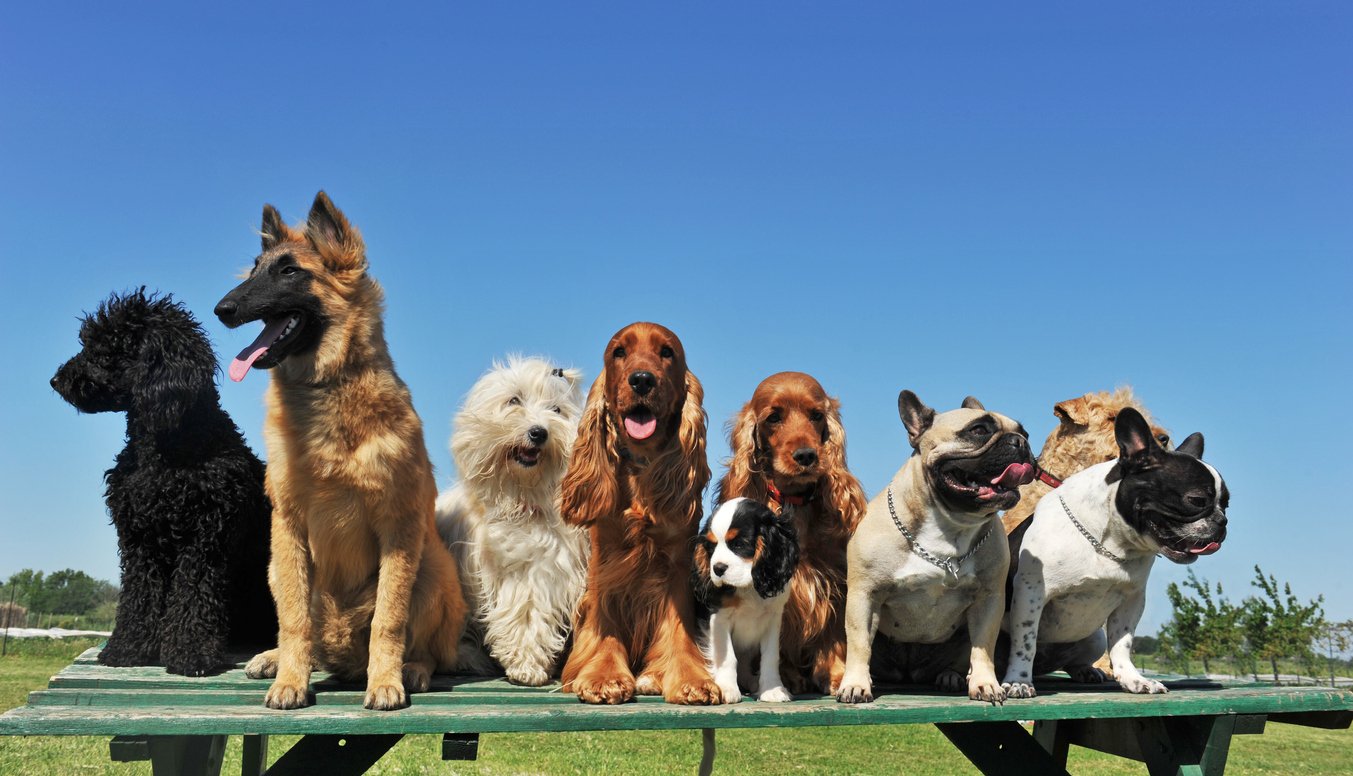Bringing a new puppy into your home is an exciting experience, but it also comes with a significant responsibility to ensure they grow into well-behaved and happy adult dogs. Puppies go through five distinct training phases during their first year. Effective training from an early age is crucial, and you should start by preparing for your puppy’s arrival—this includes purchasing necessary items and allowing other pets to adjust before the puppy arrives.
We'll cover the essentials of puppy training, offering new pet parents a foundational guide to help their furry friends adjust and thrive in their new environment by understanding what your puppy will need for proper care and training.

1. Establishing a Routine
Puppies thrive on routine, as it gives them a sense of security and helps them understand what to expect next. Taking your puppy outside every half hour is important, as it helps them learn where to go potty and reinforces good habits. Establish a consistent schedule for feeding, potty breaks, playtime, and sleep, making sure to give your puppy enough time to adjust to each part of the routine.
Establishing a strict schedule for house training by taking your puppy outside every 1-2 hours and immediately after meals, naps, or play is the best way to reinforce good habits. This consistency helps prevent accidents and sets the stage for successful house training, and be sure to let your puppy explore their environment as part of the routine.
2. Socialization
Socialization is the process of exposing your puppy to a variety of people, animals, environments, and experiences during the first few months of life. Socialization is critical between 8 and 16 weeks, and you can even begin some socialization before all vaccinations are complete, as long as you take appropriate precautions. Proper socialization can help prevent behavioral problems later on, such as aggression or fearfulness.
Positive reinforcement is essential during socialization and exposure training to help your puppy build confidence and associate new experiences with rewards. Introduce your puppy safely to different sounds, sights, and surfaces, ensuring each experience is positive, and keep your puppy on a leash during initial exposure to new environments for safety.
Remember to keep social interactions controlled and gentle, and allow your puppy to experience new things in a safe, gradual manner, especially in the early stages. Socialization should continue until the puppy is about 16 weeks old for optimal results.

3. Basic Commands
To teach your puppy basic commands like “sit,” “stay,” “come,” and “leave it,” focus on guiding them through cues that signal the behaviors you want. Use clear cues for each command to help your puppy understand what is expected. Frequently use your puppy’s name during training to help it get used to hearing your voice and responding to you.
This approach fosters a good relationship with your puppy and encourages them to view training as a fun and rewarding activity. Keep training sessions short—about 5–10 minutes each—and repeat them several times throughout the day to maintain your puppy’s attention and motivation.
When you teach commands, break them down into smaller, achievable steps to make learning easier for your puppy. Use a clicker or a consistent marker word to indicate the exact moment your puppy performs the correct behavior, bridging the gap between action and reward.
As you teach your puppy, ask for specific behaviors and reward them when they respond correctly. Say commands clearly and use consistent verbal cues so your puppy can learn to associate words with actions.
After your puppy completes a command, use a release command or marker word like “break” to signal that they can relax or stop holding the position. Show your puppy the behaviors you want by demonstrating and reinforcing them consistently.
Focus on establishing eye contact and use the “look” command to help your puppy pay attention to you during training. Reinforce desired behaviors with praise or treats, and make sure to let your puppy know when they get it right.
4. Potty Training
Potty training is one of the very first (and most important) routines you’ll establish with your new puppy. While it can take time and patience, starting with consistent habits early on sets both you and your pup up for success.
As a general rule, puppies can hold their bladder for about one hour for every month of age. For example, a two-month-old puppy may only be able to wait two hours between potty breaks. Because of this, frequent trips outside are essential—especially in the early weeks.
Choose a designated potty area outdoors and take your puppy to the same spot every time. This helps them associate that area with going potty and builds a clear routine. Be sure to take your puppy out:
-
First thing in the morning
-
After meals and drinking water
-
After naps or waking up
-
After playtime or excitement
-
Right before bedtime
When your puppy goes potty in the correct spot, offer immediate praise and a small treat. Positive reinforcement helps your puppy understand exactly what behavior you want to repeat.
Accidents will happen—and that’s completely normal. If your puppy has an indoor accident, avoid punishment. Instead, calmly clean the area with an enzymatic cleaner to remove lingering odors that might encourage repeat accidents. Consistency, patience, and gentle guidance go a long way during this learning phase.
With time, routine, and plenty of encouragement, your puppy will begin to understand where and when it’s appropriate to go. Stick with it! You’re building healthy habits that will last a lifetime.
5. Biting and Teething

Chewing and biting are completely normal puppy behaviors. Puppies use their mouths to explore the world—much like babies use their hands—and chewing also helps relieve the discomfort that comes with teething. While this behavior is expected, it’s important to guide your puppy toward appropriate outlets early on.
Make sure your puppy always has access to safe, age-appropriate chew toys in a variety of textures. Rotating toys every few days can keep them exciting and prevent boredom. When your puppy begins to chew on furniture, shoes, or other household items, calmly redirect them to a toy instead. This teaches them what is acceptable to chew, rather than just what isn’t.
Puppy biting—especially nipping at hands, feet, or clothing—is often a form of play or an attempt to get attention. If this happens, avoid yelling or physical correction. Instead, stop the interaction briefly and redirect their attention to a toy or engage them in a calm activity. Over time, your puppy will learn that gentle play continues the fun, while biting makes it stop.
Consistency is essential. Everyone in the household should follow the same rules and responses when managing biting and chewing. Mixed signals—such as allowing play biting sometimes but discouraging it at other times—can confuse your puppy and slow progress.
Most importantly, remember that puppies don’t act out of spite or stubbornness. They repeat behaviors because they believe those actions are acceptable or rewarding. With patience, clear boundaries, and positive reinforcement, your puppy will gradually learn appropriate behavior and develop better self-control as they grow.
6. Crate Training
A crate can be an incredibly helpful tool for raising a happy, well-adjusted puppy. When introduced properly, it becomes a safe, cozy space where your puppy can relax, sleep, and feel secure. Crate training also plays a major role in house training, as puppies naturally avoid soiling the area where they rest.
Start by choosing a crate that’s large enough for your puppy to stand up, turn around, and lie down comfortably—but not so large that they can use one corner as a bathroom. Introduce the crate gradually and make it inviting from day one. Place soft bedding inside, toss in a few treats, and include a favorite toy or chew to create positive associations.
Encourage your puppy to explore the crate on their own terms. Leave the door open at first and reward them for entering voluntarily. As they become more comfortable, you can begin closing the door for short periods, gradually increasing the time as your puppy adjusts. Feeding meals near or inside the crate can also help reinforce that it’s a positive, rewarding place to be.
It’s important to remember that a crate should never be used as punishment. The goal is for your puppy to view it as their personal den—a place to unwind, nap, and feel safe. When used consistently and kindly, the crate becomes a valuable tool that supports training, reduces anxiety, and gives your puppy a sense of routine and security.
7. Handling and Grooming
Get your puppy accustomed to being handled. As you do this, monitor your puppy's body language closely—see if you notice signs of stress or overwhelm, such as tucked tails, yawning, or avoidance, and adjust your training approach accordingly. Gently touch their paws, ears, and mouth, and introduce them to grooming routines early on. Regular handling helps your puppy tolerate vet exams and grooming sessions more comfortably in the future.
Training a new puppy requires patience, consistency, and a lot of love. By establishing a solid foundation of training and care, you will help your puppy develop into a well-adjusted dog. Remember, the effort you put into training during these early months is an investment in a lifelong relationship with your pet. If you ever feel overwhelmed, consider enrolling in puppy training classes led by professionals, which can also serve as a great additional resource for socialization.
Start a free trial with Revelation Pets to see how much easier managing your pet-care business can be.






